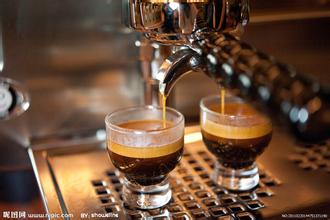Flavor and taste of Arabica Coffee Manor Coffee beans from Bali, Indonesia
Arabica coffee tree
One of the most important coffee trees in the world. Arabica species (scientific name Coffee Arabica). The origin of Arabica species is Ethiopia's Abyssinia Plateau (present-day Ethiopian Plateau). In the early days, it was mainly used as medicine, and in the 13th century it developed the habit of baking and drinking. It was introduced into Europe through the Arab world in the 16th century and further became a favorite drink all over the world. Arabica coffee accounts for about 65% of the world's coffee beans, and its excellent flavor and aroma make it the only coffee among these native species that can be drunk directly and alone. However, its resistance to drying, frost, diseases and insect pests is low, especially to the biggest natural enemy of coffee-leaf rust, so all producing countries are committed to improving varieties. For example, Sri Lanka, as we all know, used to be one of the most famous coffee producers in the past, but coffee farms were not spared by leaf rust at the end of the 19th century. Since then, Sri Lanka has turned to black tea, which is also the kingdom of black tea in India. Arabica is a large shrub with oval, dark green leaves and oval fruit. There are generally two slightly flattened beans with small and round beans, long oval on the front, narrow and S-shaped cracks in the middle, and smooth arcs on the back of the beans. Caffeine content is about 1% Muay 1.7%. Arabica coffee trees grow between 900m and 2000 m above sea level; they are cold-resistant, and the suitable growth temperature is 15ml / 24m; they need more humidity, and the annual rainfall is not less than 1500 ml. At the same time, they also require higher cultivation techniques and conditions. Arabica coffee beans are mainly grown in South America (except Argentina and parts of Brazil), Central American countries, Africa (Kenya, Ethiopia, etc., mainly East Africa), Asia (including parts of Yemen, India and Papua New Guinea). A small amount of Arabica coffee beans are also grown in Yunnan, Hainan and Taiwan in China.

Important Notice :
前街咖啡 FrontStreet Coffee has moved to new addredd:
FrontStreet Coffee Address: 315,Donghua East Road,GuangZhou
Tel:020 38364473
- Prev

Indonesian coffee bean flavor taste manor production area introduces Indonesian coffee brands
The chairman of the Indonesian Special Coffee Association (SCAI), one of the high-quality coffee institutions in Indonesia, gave a brief overview of the export coffee business. Indonesia's total exports grew by an average of 50-20% a year from 2000 to 2009, until it became the third largest coffee manufacturer in the world. Robasta coffee accounted for about 70% of the total exports, because the earliest
- Next

Introduction to Rasuna Vahana Manor in Sumatra Coffee Manor, Indonesia
The light of Manning, which is introduced to you this time, seems to me to be a late virgin. When I got this sample of raw bean two months ago, I didn't think much of it. At that time, although I thought the quality of coffee beans was good after the cup test, I went out immediately after the cup test. I didn't write a summary of the cup test, so this one.
Related
- Does Rose Summer choose Blue, Green or Red? Detailed explanation of Rose Summer Coffee plots and Classification in Panamanian Jade Manor
- What is the difference between the origin, producing area, processing plant, cooperative and manor of coffee beans?
- How fine does the espresso powder fit? how to grind the espresso?
- Sca coffee roasting degree color card coffee roasting degree 8 roasting color values what do you mean?
- The practice of lattes: how to make lattes at home
- Introduction to Indonesian Fine Coffee beans-- Java Coffee producing area of Indonesian Arabica Coffee
- How much will the flavor of light and medium roasted rose summer be expressed? What baking level is rose summer suitable for?
- Introduction to the characteristics of washing, sun-drying or wet-planing coffee commonly used in Mantenin, Indonesia
- Price characteristics of Arabica Coffee Bean Starbucks introduction to Manning Coffee Bean Taste producing area Variety Manor
- What is the authentic Yega flavor? What are the flavor characteristics of the really excellent Yejasuffi coffee beans?

